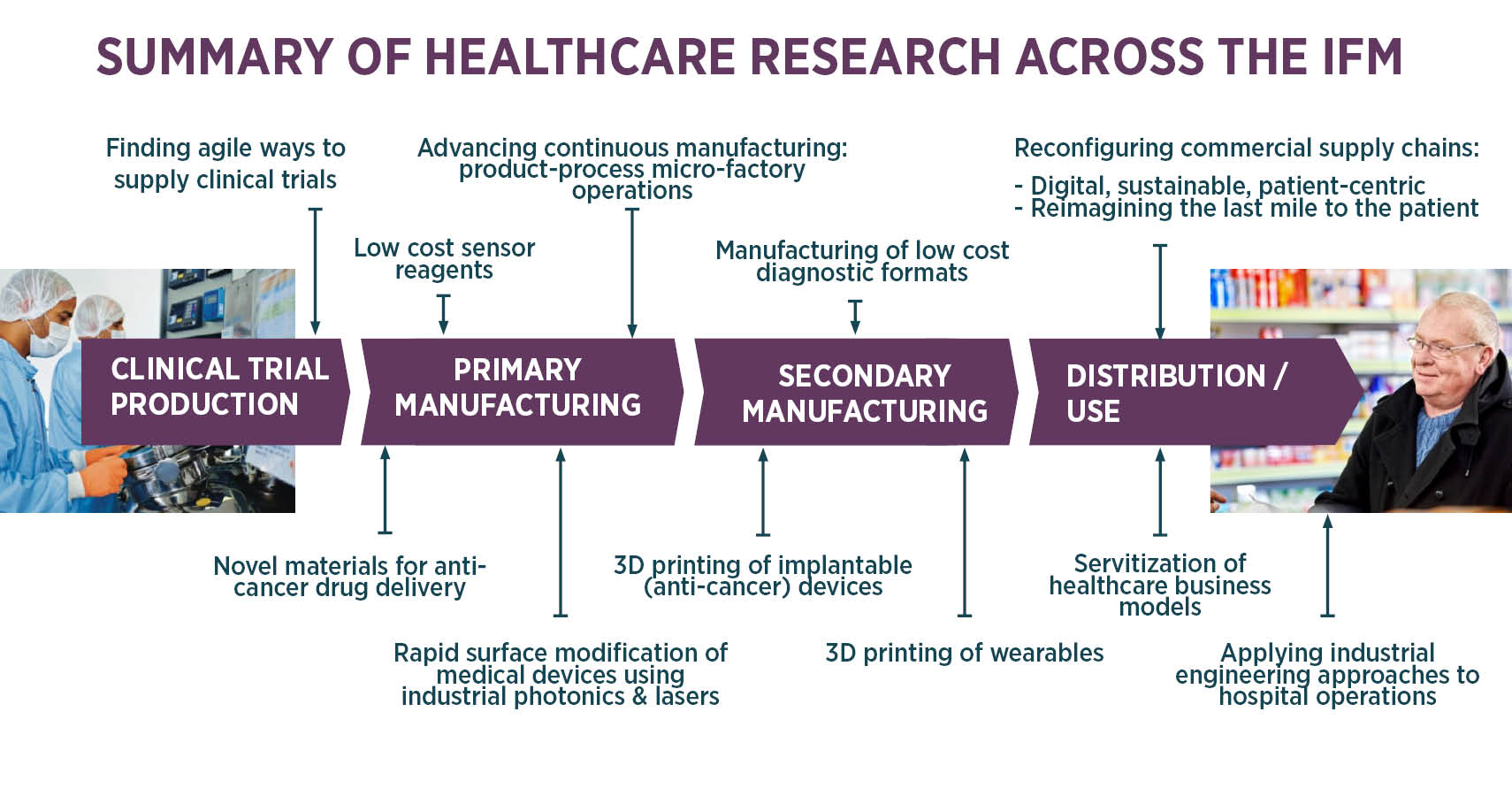Healthcare Research
IfM healthcare research and practice brings together expertise in manufacturing science, technology, management, digitalisation and service solutions to address the complete portfolio of challenges in the healthcare supply chains. Research projects range from clinical trial supply chains through manufacturing of drugs and medical devices all the way to developing service models and reconfiguring the healthcare supply chains.

IfM healthcare research areas:
- Nano-scale devices for bio-sensing (NanoManufacturing)
- Custom Wearable and Implantable devices (led by Complex Additive Materials Group)
- Additive Manufacturing of Implants (led by the Centre for Industrial Photonics)
- Low Cost Diagnostics and Advanced Manufacturing with Bio-fluids (led by the Fluids in Advanced Manufacturing Group)
- Reconfiguring Healthcare Supply Chains (led by the Centre for International Manufacturing)
- Servitization of healthcare business models (led by the IfM’s Service Alliance)
Healthcare across the University of Cambridge
Four Interdisciplinary Research Centres (IRCs) are in healthcare with several Strategic Research Initiatives/Networks (SRIs/SRNs) in healthcare related themes.
Healthcare Interdisciplinary Research Centres (IRCs)
- CRUK Cambridge Centre
- Cambridge Cardiovascular
- Cambridge Infectious Diseases
- Wellcome - MRC Cambridge Stem Cell Institute
Healthcare Strategic Research Initiatives/Networks (SRIs/SRNs)
- Cambridge Academy of Therapeutic Sciences
- Cambridge Reproduction SRI
- Cambridge Immunology Network
- Cambridge Institute of Public Health
Connecting with the Cambridge Healthcare Ecosystem
There are over 400 companies in the Cambridge lifesciences cluster including AstraZeneca, Abcam and Horizon Discovery Group, providing £3 billion (2017) contribution to the UK economy and employing over 15,000 jobs. Sites across Cambridge including the Biomedical Campus, Cambridge Science Park and Granta Park provide world-leading facilities for this ecosystem.
In 2018, AstraZeneca comissioned a report that indicated should the Cambridge life sciences cluster continue to grow at its current rate it has the potential to contribute a further £1 billion per annum to the UK economy in 2032 and could provide 6,000 additional jobs within the same timeframe.
Professor Andy Neely, Pro-Vice-Chancellor for Enterprise and Business Relations at the University of Cambridge and former Head of the Institute for Manufacturing (IfM) commented on this report “The life sciences play a central role in the Cambridge cluster. Connecting people - especially their skills and ideas - to finance enables the cluster to grow and prosper. This report from AstraZeneca is a valuable contribution to our understanding of the Cambridge cluster, and demonstrates that the deep and lasting collaborations between businesses and our local universities are a crucial element underpinning the region’s economic success”.









